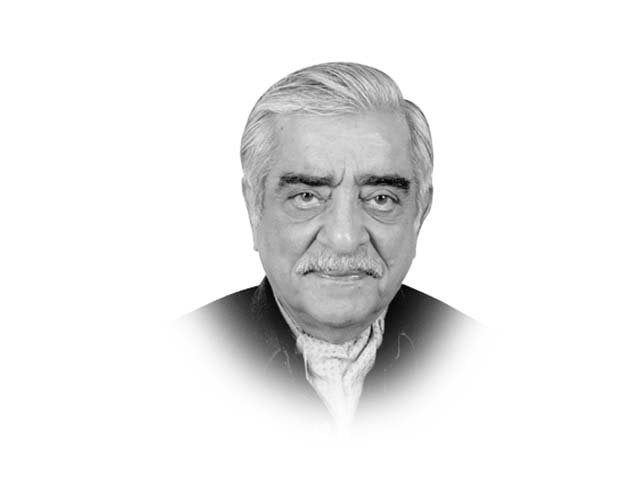Out of Afghanistan
In the present circumstances, Afghans believe that ‘those who have invested will decide to leave, fearing instability’

The writer was foreign secretary from 1994-97 and also served as Pakistan’s ambassador to Iran (1992-94) and the US (1990-91)
Obama’s long-awaited decision on the post-2014 troop levels the US would maintain came after his unannounced visit to Bagram airbase and his consultation with his military and civilian advisers in Afghanistan. President Karzai burnished his nationalist credentials by refusing to join Obama in Bagram, by welcoming the announcement of the complete withdrawal by 2016 and by claiming that the Afghan forces were fully capable of handling the security situation after the US withdrawal. His focus, when he was briefed on the Obama decision by General Dunford, was on deriding the failure of Dunford and Ambassador Cunningham to endorse the Afghan complaints about Pakistan shelling of Kunar province and to note only cursorily the impact of Obama’s decision.
In Washington, Secretary Kerry did the round of TV shows to answer the criticism, which in its most reasoned form argued that this showed lack of will and suggested that the solution lay in changing the deadline of withdrawal to ‘when the end of the mission that these troops have risked their lives for is accomplished’. In his various appearances Kerry argued that setting a deadline was essential since “if you tell the Afghans we’ll be here as long as it takes, you can absolutely bet your bottom dollar they’ll take as long as they want. The American people don’t want that. We need to set targets. We need to set dates”. He went on to stress that military personnel would remain to do the job under the Bilateral Security Agreement (BSA) and that therefore, this was not an abandonment of Afghanistan but an empowerment and “a way to put the Afghans on track to do what they should do for themselves at this point in time”.
Chairman Joint Chiefs of Staff General Dempsey argued that Afghanistan has time to develop a reliable counter-terrorism force before 2016 and claimed that both Afghan Defence Chief General Karimi and Pakistan’s chairman joint chiefs of staff had welcomed the decision. My feeing is that while both may have welcomed the long-awaited decision on troop levels, General Karimi must have questioned the deadline of 2016 set for the complete withdrawal.
In interview after interview, American reporters found expressions of dismay not only by Afghan politicians but by Afghan army officers whose views, seconded by numerous Pentagon reports on the subject, made it clear that ‘the Afghan Army will not be prepared in terms of quality and quantity’. While there has been a considerable improvement in the proficiency of the Afghan National Security Forces (ANSF), efficient handling of logistics getting food and fuel supplies to troops on the frontline, maintaining equipment, evacuating the wounded remain, at this point, beyond the ANSF’s capabilities and will remain so well beyond 2016.
Most people in Afghanistan had reckoned that since the BSA, which both contenders for the presidency have pledged to sign, talked of an American military mission that could remain active ‘until the end of 2024 and beyond’ there would be a substantial military presence, at least, until 2024. In the present circumstances, Afghans believe that ‘those who have invested in Afghanistan will decide to leave the country, fearing instability will worsen in a couple of years’.
The Taliban, who also seem to have been taken off guard, confined themselves to a laconic statement the gist of which was that ‘jihad won’t be cancelled by the decrease in number of soldiers’, and ‘jihad is incumbent and our nation will continue its righteous jihad’.
More will follow next week on the consequences for the Afghan economy, for Pakistan and for the region.
Published in The Express Tribune, June 2nd, 2014.
Like Opinion & Editorial on Facebook, follow @ETOpEd on Twitter to receive all updates on all our daily pieces.














COMMENTS
Comments are moderated and generally will be posted if they are on-topic and not abusive.
For more information, please see our Comments FAQ